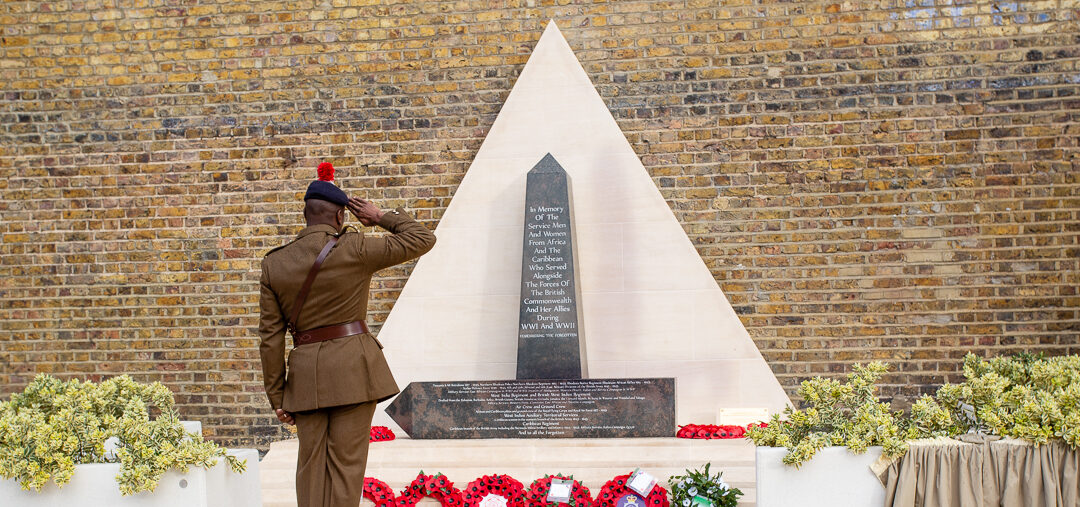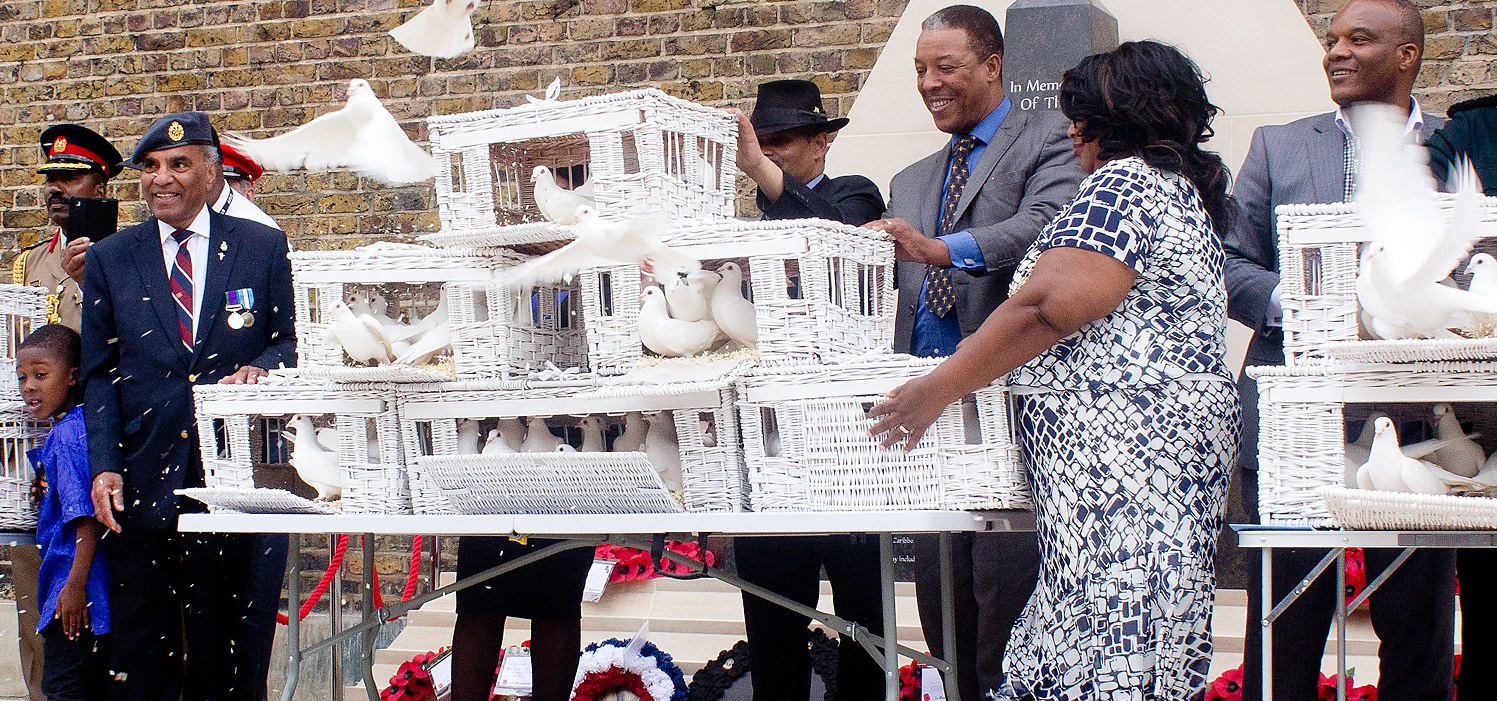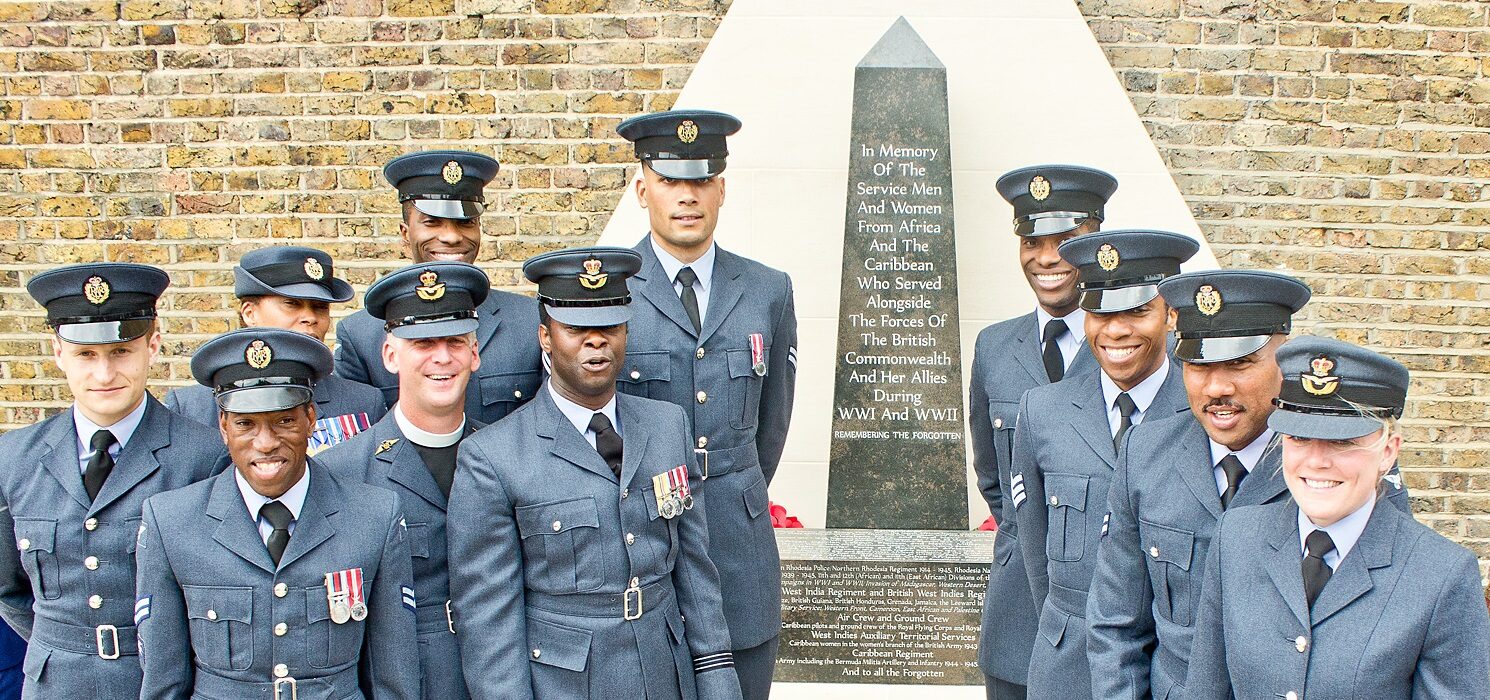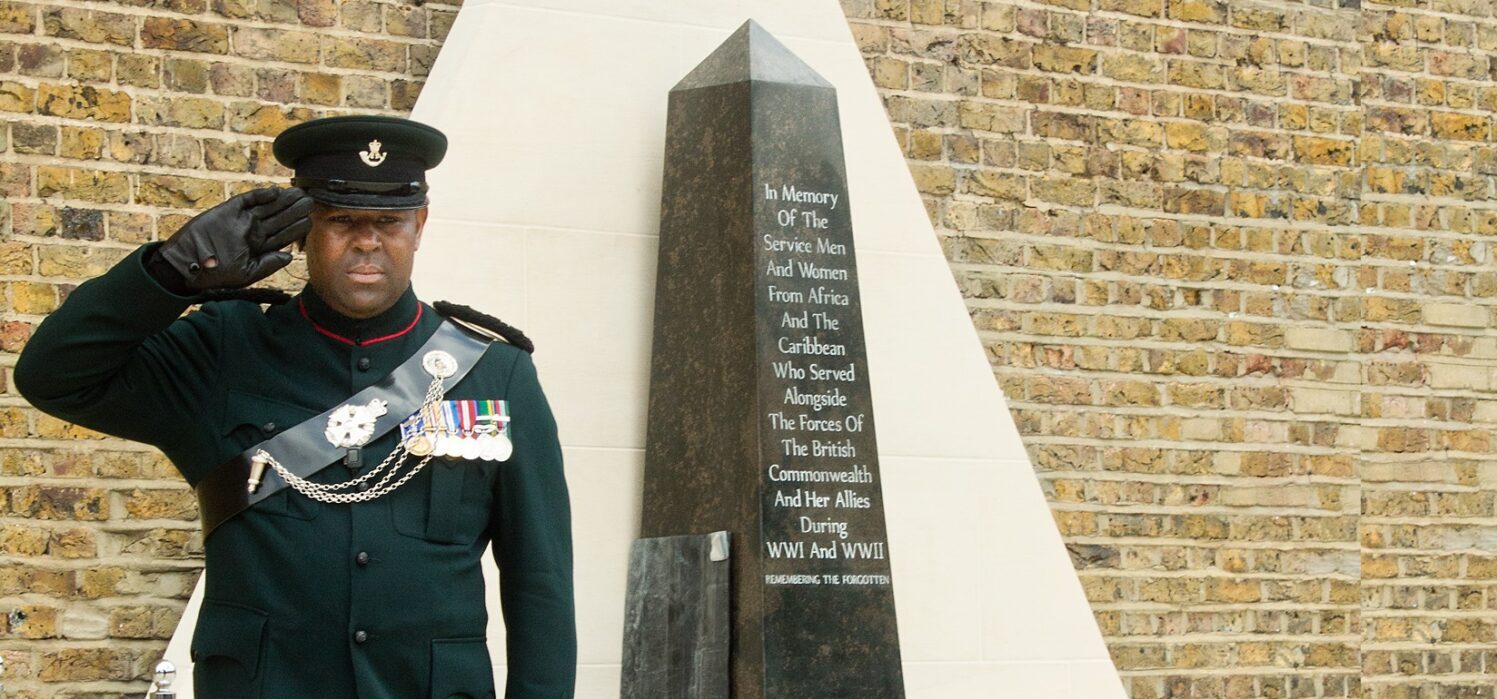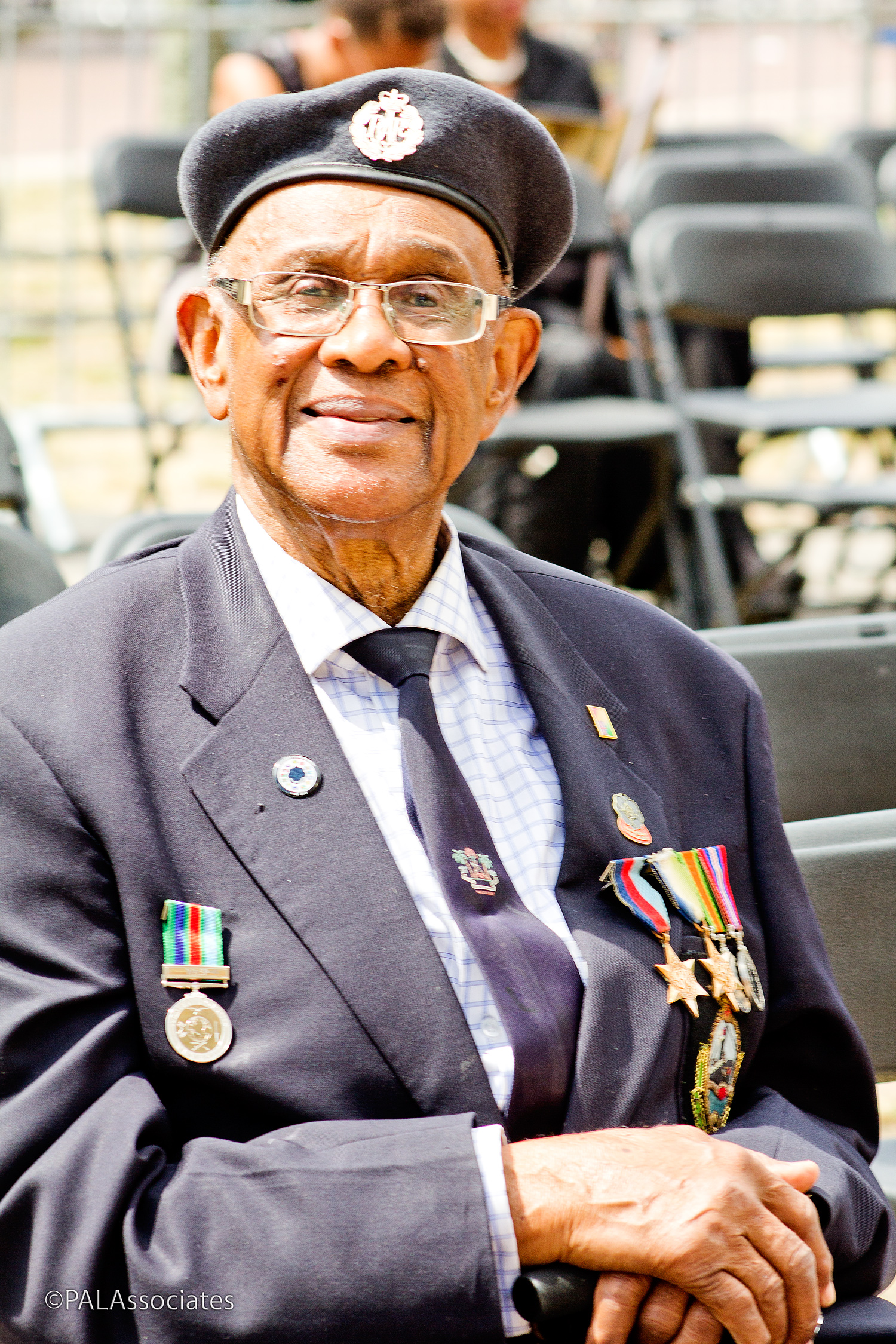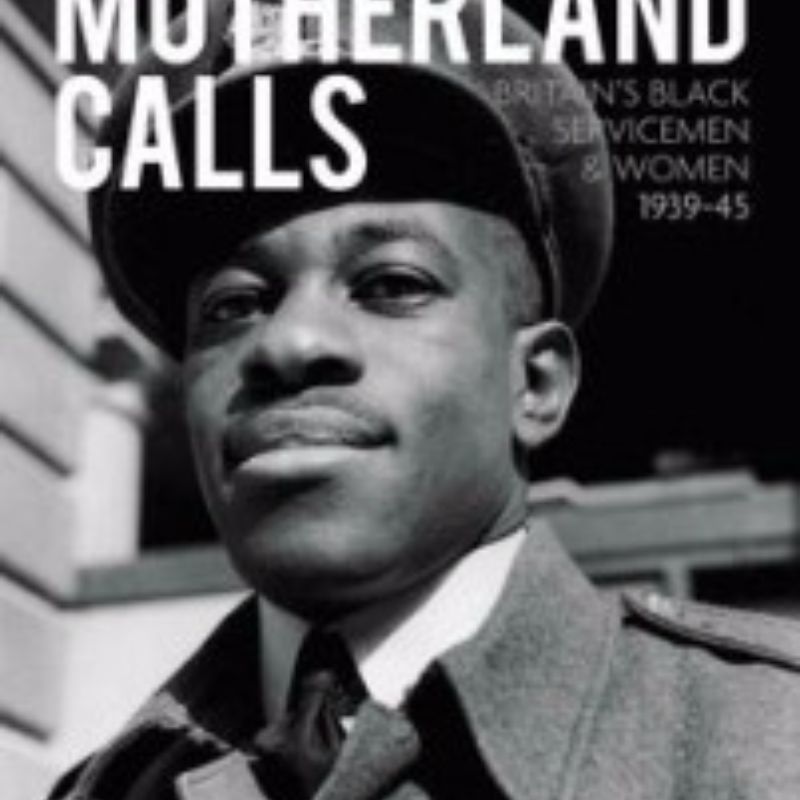In Memory Of The Service Men And Women From Africa And The Caribbean Who Served Alongside The Forces Of The British Commonwealth And Her Allies During WW1 and WW2.
The idea for the African and Caribbean War Memorial originated in the desire to commemorate Caribbean Royal Air Force veterans of World War II. However, as the project unfolded, it evolved into a far larger tribute that marked contributions to victory made in both World Wars by more than two million servicemen and women from the Caribbean and Africa. The memorial was ready in early 2014, but fundraising efforts to cover the cost of its manufacture, plinth design and installation ceremony (planned for Armistice Day in November 2016 meant that the memorial waited in storage until NJCT could find a suitable location. Finally, on 28 September 2016, planning permission was granted, and the memorial was permanently installed and unveiled on 22 June 2017 in Windrush Square, Brixton. As it is locally known, the Brixton Cenotaph is the United Kingdom’s national memorial to African and Caribbean service personnel who fought in the First and Second World Wars.
Designed by Jak Beula, the African and Caribbean War Memorial consists of two 6-foot obelisks made from Scottish whinstone, weighing approximately 0.75 tons, and a pyramidal plinth made from Ancaster stone which weighs just under 1.5 tons (combined weight 3 tons). Inscribed are every regiment from Africa and the Caribbean who served in World Wars I and II.
The unveiling ceremony was attended by war veterans, Commonwealth High Commissioners and other dignitaries, and members of the public. Those named as being honoured with medals were Alhaji Grunshi, Lionel Turpin, Walter Tull, William Robinson Clarke, Cy Grant, Ulric Cross, Sam King, Una Marson, Charles Drew, Norma Best and Allan Wilmot. Present to receive his medal in person, 93-year-old veteran Wilmot (former member of 1950s group The Southlanders), said: "I'm glad that I'm still alive to witness it (the recognition)."
The Defence Secretary Michael Fallon said that the recognition was long overdue: "The UK is indebted to all those servicemen and women from Africa and the Caribbean who volunteered to serve with Britain during the First and Second World Wars. It is thanks to their bravery and sacrifice that we are able to enjoy our freedoms today. We should also congratulate those who have worked tirelessly to place this memorial in the heart of Brixton."
Mayor of London Sadiq Khan spoke in his address of the "courageous African and Caribbean men and women who fought with the British army during the First and Second World War", noting: "As a society, we must never forget the sacrifices they made. It's vital that we pass this on to future generations, connecting children with their history."
The ceremony included a play, Remembered, at the Paul Robeson Theatre in Hounslow, West London, and the launch of a book entitled Remembered: In Memoriam, an anthology of essays, articles and narratives about African and Caribbean experiences during and in the aftermath of the world wars, compiled by Jak Beula and Nairobi Thompson.
In a letter of support to the Nubian Jak Community Trust, Her Majesty Queen Elizabeth II said: "It is now over 70 years since the end of that war, but it is just as important to remember the ultimate sacrifice made by those men and women who were prepared to lay down their live for our freedoms."
The memorial is supported by Lambeth Council, the Department of Communities and Local Government, the Foreign and Commonwealth Office, the Heritage Lottery Fund, the Black Cultural Archives, Madstone Limited, the Association of West Indian Personnel and a number of community stakeholders.
"Proceedings opened with instrumental offerings from the Ministry of Defence (MOD) military band, London All Stars Steel Orchestra and African and Caribbean drummers. These were followed by neutral prayer, delivered by two children, as well as a Christian prayer and a Muslim one. A libation was given by Professor Gus John, a priest of African traditional religious persuasion – an ode to the diverse beliefs nurtured across this country. The ceremony began with a spectacular, traditional military salute and a display of flag and ensigns for each regiment by commonwealth defence representatives of land, air and sea. This was followed by African commemorative war music and dance. Medals were given out to the ex-servicemen and women who made extraordinary contributions to the war effort and public life."
The Voice Newspaper

